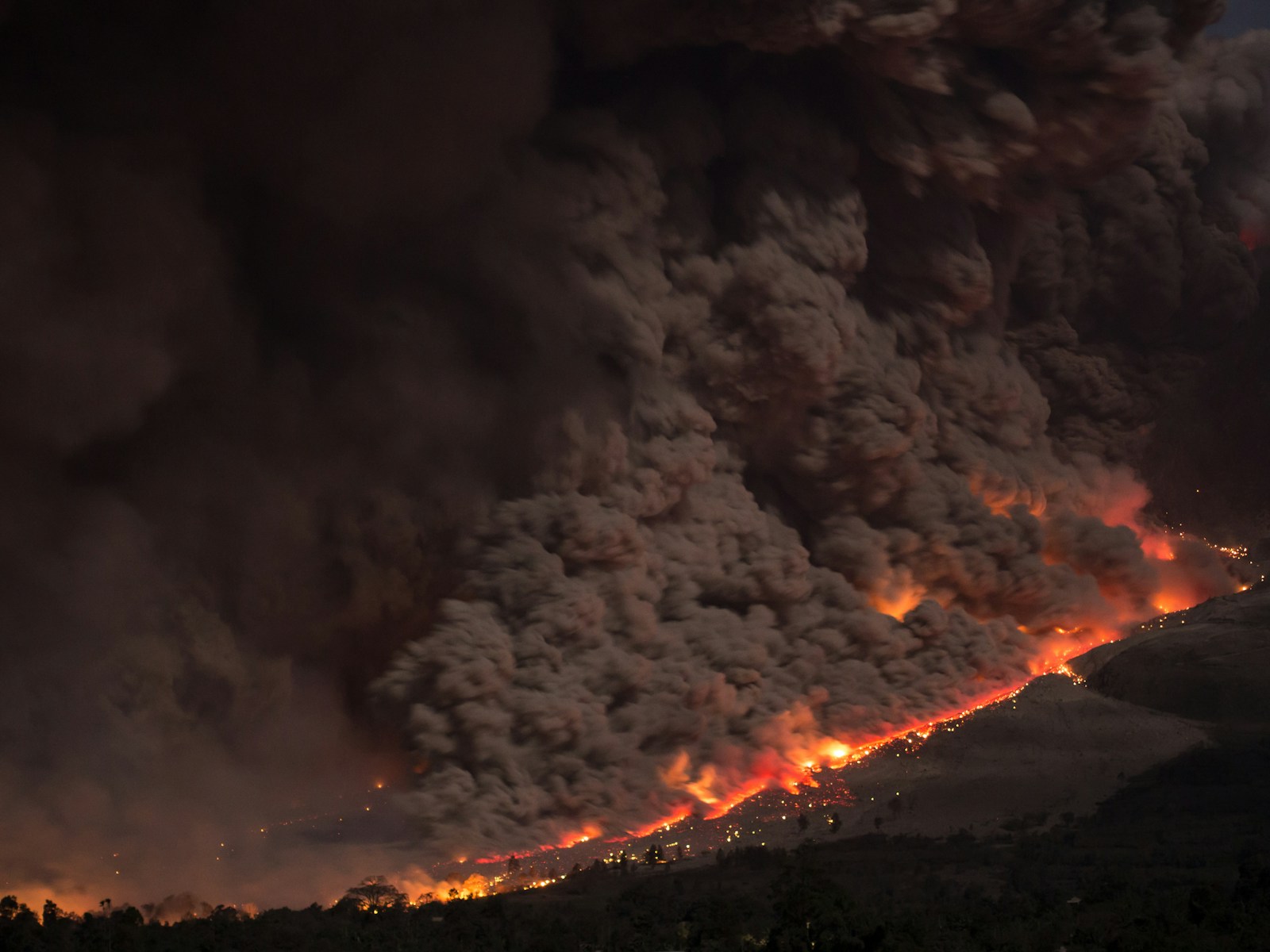
entrar en erupción

into eruption
The Spanish phrase 'entrar en erupción' directly translates to 'entering into eruption' in English. However, it is more commonly used to signify 'erupting' in a similar context as a volcano erupting. It can also be used metaphorically to describe situations where emotions or actions suddenly burst out or intensify dramatically.
Example sentences using: entrar en erupción
El volcán podría entrar en erupción en cualquier momento.

The volcano could erupt at any moment.
This sentence explains the possibility of a volcanic eruption happening anytime.
¡Tienes que irte ahora! ¡Este lugar va a entrar en erupción!

You have to leave now! This place is going to erupt!
This sentence demonstrates an urgent warning about an imminent eruption.
Después de entrar en erupción, el volcán quedó inactivo durante siglos.

After erupting, the volcano remained inactive for centuries.
This sentence describes a state of dormancy following a volcanic eruption.
Si este géiser continua presurizado, va a entrar en erupción.

If this geyser continues to be pressurized, it's going to erupt.
This sentence exemplifies a prediction or hypothesis about a geyser eruption.
La furia volcánica es rara, pero cuando decide entrar en erupción, es devastadora.

Volcanic fury is rare, but when it decides to erupt, it's devastating.
This sentence illustrates the catastrophic after-effects of a volcanic eruption.
La gente del pueblo estaba asustada porque el volcán amenazaba con entrar en erupción.

The people of the town were frightened because the volcano threatened to erupt.
This sentence portrays the fear and tension experienced by people living near a potentially erupting volcano.
La lección de hoy será sobre cómo los volcanes entran en erupción.

Today's lesson will be about how volcanoes erupt.
This sentence introduces a academic topic about the process of volcanic eruptions.
Según la leyenda, el volcán entra en erupción cada cien años.

According to the legend, the volcano erupts every hundred years.
This sentence tells a story or myth about the frequency of a specific volcano's eruptions.
La montaña empezó a temblar, indicando que iba a entrar en erupción.

The mountain began to shake, indicating it was going to erupt.
This sentence depicts the initial signs of a volcanic eruption.
El equipo de científicos ha pronosticado que el volcán va a entrar en erupción pronto.

The team of scientists has forecasted that the volcano is going to erupt soon.
This sentence shows how scientists use their knowledge and tools to predict volcanic eruptions.